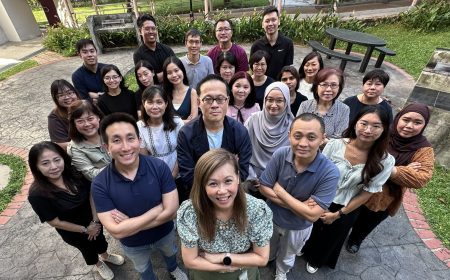Dementia is increasingly recognised as one of the most pressing health challenges facing Singapore’s ageing population. With statistics revealing that approximately one in eleven people aged 60 and above live with dementia, and numbers expected to rise steadily1, families and healthcare professionals alike are seeking effective ways to provide the best possible care and improve quality of life. While many ask, “Can dementia be cured?”, the current medical consensus is that, while there is currently no cure for dementia2, growing evidence shows that its progression can be slowed through lifestyle changes, supportive care, and early intervention3.
In this article, we will explore practical ways to explore how to slow down dementia progression, while considering important aspects such as mental health and wellbeing, brain exercises, and tips on supporting caregivers.
Understanding Dementia and its Progression
Dementia is not a single illness, but rather a collection of symptoms related to the decline of cognitive functions such as memory, problem-solving, and communication. Alzheimer’s disease is the most common form, followed by vascular dementia and other types. There are three stages of dementia: mild, moderate and severe. Although progression rates vary, recognising symptoms of dementia early, and ensuring consistent care can make a profound difference in how someone experiences the condition.
In the early stages, many individuals experience subtle cognitive and behavioral changes. This phase is characterised by seniors exhibiting memory lapses, occasional confusion, or difficulty concentrating. These symptoms of dementia disease are often mistaken for natural ageing but recognising them early is crucial. Early detection provides an opportunity to implement memory improvement strategies and other interventions that may delay further decline.
Physical Activity and its Cognitive Benefits
Regular physical exercise is one of the most effective non-pharmaceutical interventions for maintaining brain health. Exercise increases blood flow to the brain, reduces inflammation, and supports the growth of new neural connections. These benefits are particularly important for people with dementia, where blood vessel damage and neuronal damage contribute to cognitive decline.
In Singapore, incorporating physical activity into daily routines is made accessible via communal spaces for activities such as brisk walking in neighbourhood parks and tai chi. Engaging in chair-based exercises can promote ageing well by improving mobility, balance, and mood. Exercise also reduces the risk of other chronic diseases like diabetes and hypertension, both of which are known to accelerate cognitive decline.
Gentle movement not only supports physical health but also encourages memory improvement by stimulating brain function. Aim for at least 150 minutes of moderate exercise per week, broken down into manageable sessions to sustain motivation and for safety.
Nutrition for Brain Health
Diet plays a crucial role in cognitive wellbeing. Research supports the efficacy of the MIND diet—a combination of the Mediterranean and DASH diets4—in reducing the risk of dementia. This diet emphasises foods rich in antioxidants and healthy fats, such as leafy greens, berries, nuts, whole grains, olive oil, and fish, while limiting red meat, butter, fried foods, and refined sugars5.
In Singapore, adapting these dietary principles is easy and still allows you to enjoy delicious meals. Opt for brown rice instead of white rice, include local leafy vegetables such as kangkong or Chinese spinach, and choose steamed or grilled fish over fried options. Maintaining cardiovascular health by having such nutrition helps mitigate risks associated with dementia.
Hydration is equally vital. Seniors who maintain proper fluid intake tend to experience fewer episodes of confusion, fatigue, and cognitive lapses. Dehydration can worsen sleep disturbances and impair cognitive function, so drinking water regularly throughout the day is strongly encouraged.
Mental Stimulation Through Cognitive Activities
Engaging the brain regularly with brain exercises is critical for slowing cognitive decline. Activities such as puzzles, reading, learning new skills, and language games stimulate neural connections and encourage memory improvement. Using specially designed cognitive exercises and memory games provide therapeutic benefits, helping patients practice recall, problem-solving, and attention.
Even simple activities such as listening to music, participating in art therapy, or gardening can help activate different parts of the brain, promote relaxation, and offer enjoyment.

The Power of Social Interaction
Social connection is fundamental to mental health and wellbeing for individuals living with dementia. Isolation and loneliness have been linked to accelerated cognitive decline and increased risk of depression6. Conversely, regular social interaction improves mood, cognitive function, and sense of identity.
Daily conversations with family or friends, sharing meals together, or attending community events provide essential cognitive stimulation. For seniors living alone or with limited social contact, Senior Day Care services offer invaluable opportunities to connect with peers through group activities, games, music sessions, and reminiscence therapy7.
Staying socially engaged helps maintain cognitive function, reduces feelings of isolation, and supports overall emotional health.
The Importance of Quality Sleep
Sleeping well is vital for brain health. During sleep, the brain clears toxins and consolidates memories. Unfortunately, sleep disturbances such as insomnia, night-time confusion, and frequent waking are common among people with dementia, often exacerbating daytime agitation and cognitive impairment.
Establishing a calming bedtime routine can significantly improve sleep quality. Reducing screen time before bed, avoiding caffeine in the evening, and engaging in relaxing practices like breathing exercises or listening to music help ease anxiety and prepare the body for rest. Creating a peaceful, safe sleeping environment with soft lighting and minimal noise is also essential.
Stable daily routines—regular mealtimes, exercise, and rest—help regulate the body’s internal clock, reducing night-time wandering and improving overall sleep patterns.
Managing Chronic Conditions and Medications
Chronic illnesses such as hypertension, diabetes, and high cholesterol are major risk factors for dementia. These conditions damage blood vessels, impairing oxygen and nutrient delivery to the brain and accelerating cognitive decline.
Effective management of these conditions through regular health monitoring, adherence to prescribed medications for dementia and other illnesses, and lifestyle adjustments is crucial to slowing dementia progression. Routine medical check-ups and medication reviews help ensure optimal brain and body health.
Managing chronic conditions not only protects cognition but also boosts energy, stabilises mood, and improves quality of life for seniors.
Emotional and Mental Wellbeing
Mental health and wellbeing are just as vital as physical health in dementia care. Anxiety, depression, and chronic stress can worsen symptoms and impair daily functioning. Creating a calm, supportive environment with consistent routines can promote emotional stability.
Simple interventions such as breathing exercises, gentle music therapy, and familiar hobbies reduce agitation and foster relaxation. Group activities like art or music therapy offer creative outlets for expression and reduce stress.
Creating a Dementia-Friendly Environment
Adapting the living environment to the needs of a person with dementia greatly enhances safety and independence. As cognitive impairment progresses, familiar surroundings can become confusing or hazardous.
Simple modifications include clearly labelling cupboards and rooms with words and pictures, removing clutter and tripping hazards, ensuring adequate lighting, and installing grab bars in bathrooms and near stairways. Using contrasting colours to highlight important items helps compensate for memory loss and reduces frustration.
Supporting Caregivers and Families
Caring for a loved one with dementia is challenging and often overwhelming. Families need support, education, and practical resources to manage behavioural changes, emotional needs, and complex care tasks.
Understanding dementia progression, adopting effective communication strategies, and learning coping mechanisms help ease the caregiving journey. Recognising the risk of caregiver stress and burnout syndrome encourages families to seek help without guilt.
How NTUC Health Supports Seniors Living with Dementia
At NTUC Health, our Senior Day Care services provide a warm, structured environment where older adults engage in meaningful activities that promote cognitive, emotional, and physical wellbeing.
Seniors can look forward to daily sessions of gentle exercises, memory games, music and art therapy, and social interaction. These activities are proven to slow down dementia progression and enhance mental health and wellbeing.
Our experienced care staff also offer guidance and emotional support to caregivers, recognising the critical role they play and the stresses they face.
If caregivers prefer flexible dementia care, NTUC Health’s Fun with Friends, a weekly 3-hour programme designed specifically for persons with mild cognitive impairment or mild dementia, helps seniors to maintain and improve their mental, physical, and social functions. Now also available as Fun with Friends Plus, seniors with moderate dementia can go through a structured 33-week programme filled with activities such as physical exercise, art, music, cooking and baking, and cognitive stimulation activities.
Take the First Step Towards Better Dementia Care
While dementia remains a progressive condition, its onset is not necessarily inevitable or rapid. With timely intervention, lifestyle changes, and community support, seniors can live with dignity, joy, and meaningful connection.
If you are caring for a loved one with dementia, do not wait until it becomes overwhelming. Early action improves outcomes for both the person with dementia and their family.
Let NTUC Health support you with professional care and a compassionate approach tailored to your family’s needs. Visit here to learn more about our Senior Day Care services and how we can partner with you in your caregiving journey. Together, we can help our seniors age well, thrive, and live fully despite the challenges of dementia.


